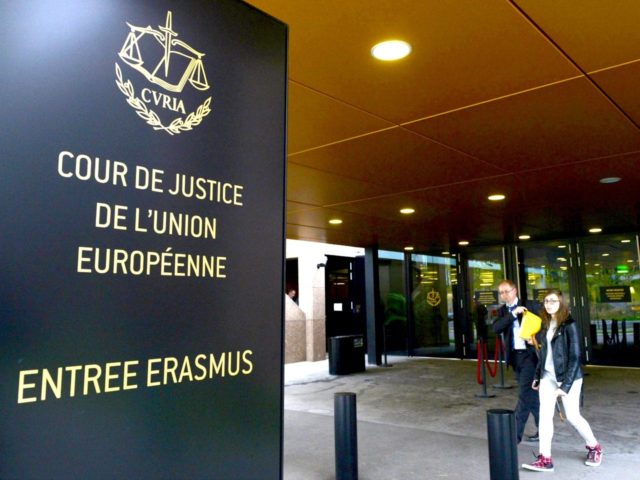Britain’s Brexit deal with the European Union (EU) will almost certainly be reviewed by the Court of Justice of the European Union (ECJ), its chief justice has said, claiming judges could interfere and alter the settlement.
Koen Lenaerts said while it was impossible to predict which aspects of any future deal might be referred to his court, Britain’s exit from the EU could be shaped under the very jurisdiction it is determined to escape.
“It probably will, one day or another, end up on the docket of the Court – not because of the Court, but because of parties bringing the case,” he told Reuters in an interview.
Mr. Lenaerts cited a judgment two decades ago that forced a change to EU banana trade pacts with Latin American nations, claiming the ECJ could ultimately amend any post-Brexit EU-UK trade deal in a similar way.
This raises the prospect of Brexit and the UK’s trading relationship with the EU being fought out in the courts for years after the two-year Article 50 divorce deadline, creating ongoing uncertainty for business and markets.
The ECJ is the top judicial authority of the EU overseeing the application and interpretation of EU law, which is supreme to national law. It also works with national judiciaries to resolve legal disputes between national governments.
The court has been accused of gradually expanding its remit and power over the years, even attempting to rule on national constitutions.
In the interview, Mr. Lenaerts was keen to stress he was only speculating about the ECJ’s involvement in Brexit and claimed if judges became embroiled they would be acting independently of political influence.
“We are not pro-Union, we are not against Union,” he claimed. “We are pro law. The law is made by the political process.”
Asked about British newspapers criticising judges who ruled against the government on Brexit, Mr. Lenaerts noted the ECJ’s 28 judges, one from each EU state, tend to keep a lower profile and, in contrast to Supreme Courts in Britain or the U.S., do not publish personal votes on cases or any dissenting opinions.
“We certainly do not feel immune to criticism,” he added. “Criticism is something very constructive. A court is operating in a real world context.”

COMMENTS
Please let us know if you're having issues with commenting.